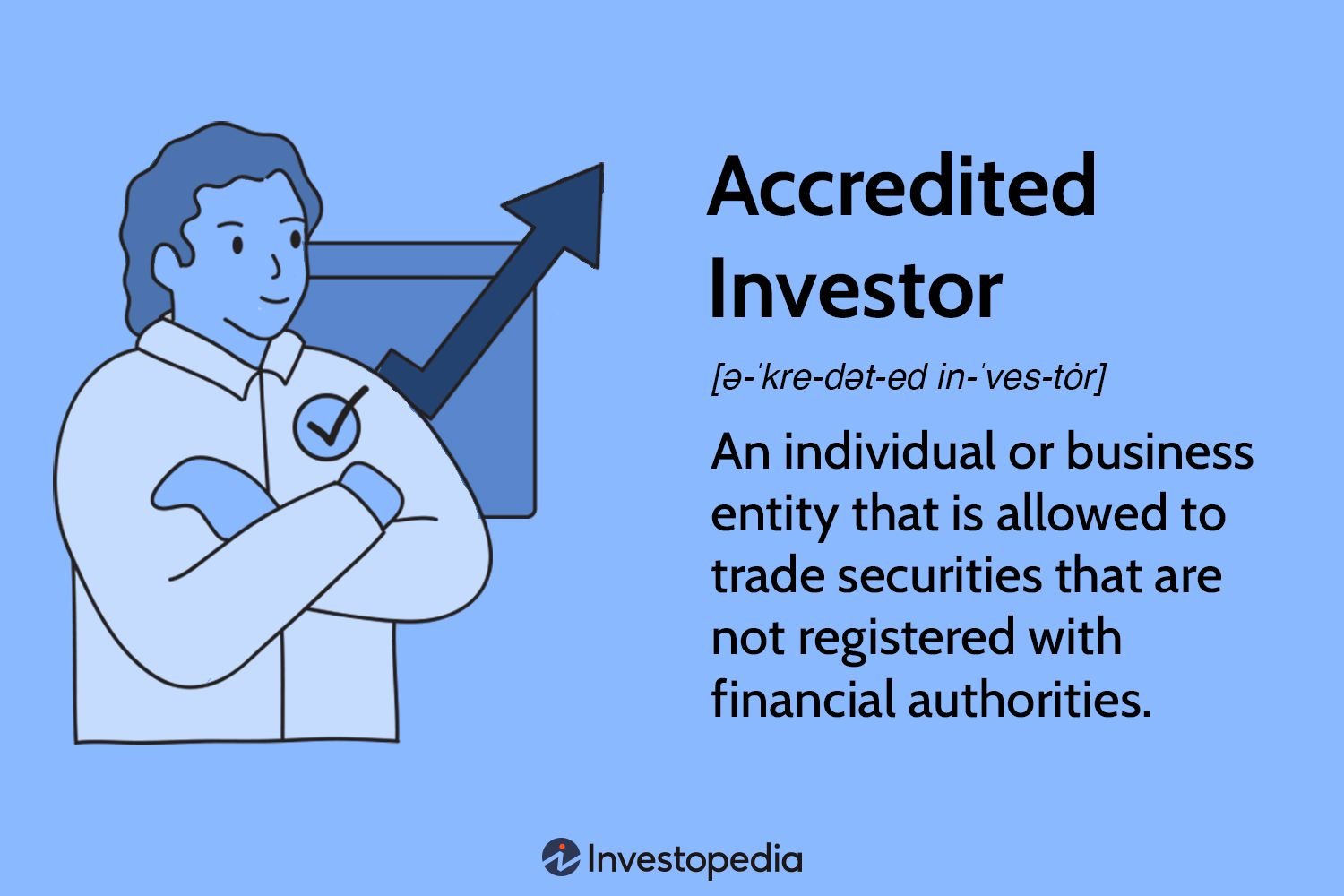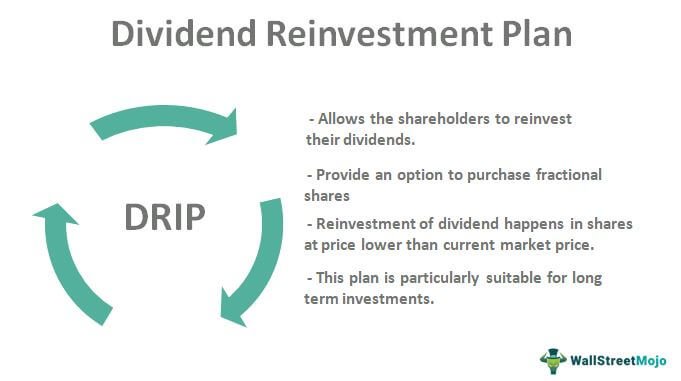Have you ever wondered what an accredited investor in finance truly is? Well, wonder no more! An accredited investor in finance is a term used to describe individuals or entities who meet specific financial criteria and are deemed suitable to participate in certain investment opportunities. Essentially, being an accredited investor opens doors to unique investment prospects that may not be available to the general public. In this blog article, we will delve into the details of what it means to be an accredited investor, explore the qualifications, and shed light on the benefits that come with this designation. So, let’s embark on this journey of financial knowledge together!
What is an Accredited Investor in Finance?
If you’re interested in finance, you may have come across the term “accredited investor.” But what exactly does it mean? In the world of investments, an accredited investor is an individual or entity that meets specific criteria, allowing them to participate in certain investment opportunities that are not available to the general public.
Being an accredited investor opens up a realm of possibilities for high-net-worth individuals and institutional investors. In this article, we will delve into the details of what it means to be an accredited investor, the qualifications needed, and the advantages it offers.
Understanding Accredited Investor Criteria
To qualify as an accredited investor, certain financial thresholds must be met. The criteria vary depending on the jurisdiction, but some common requirements include:
1. Income Requirements
One way to qualify as an accredited investor is by meeting specific income thresholds. In the United States, for example, an individual must have earned at least $200,000 in annual income for the past two years ($300,000 if jointly filing with a spouse) and have a reasonable expectation of reaching the same income level in the current year.
2. Net Worth Requirements
Another way to become an accredited investor is by meeting certain net worth requirements. In the United States, an individual must have a net worth of at least $1 million, excluding the value of their primary residence. Entities such as corporations, partnerships, or trusts can also qualify as accredited investors if they have total assets exceeding $5 million.
3. Professional Designations
Certain professional designations can also grant qualification as an accredited investor. For example, in the United States, individuals holding the Series 7, Series 65, or Series 82 licenses are considered accredited investors. These licenses demonstrate expertise in investment-related fields and indicate a higher level of financial understanding.
The Importance of Accredited Investors
Accredited investors play a crucial role in the investment landscape. They provide capital to businesses and startups, helping fuel innovation, economic growth, and job creation. By allowing qualified investors to access investment opportunities not available to the general public, the system encourages capital flow into potentially high-growth areas.
Advantages of Being an Accredited Investor
Being an accredited investor comes with several advantages that are not available to non-accredited individuals. Here are some key benefits:
1. Access to Private Investments
One of the most significant advantages of being an accredited investor is gaining access to private investment opportunities. These investments often have higher growth potential than publicly traded assets and can include venture capital, private equity, hedge funds, and angel investing. By participating in these exclusive opportunities, accredited investors can diversify their portfolios and potentially earn higher returns.
2. Potential for Higher Returns
Private investments have the potential to generate higher returns compared to traditional asset classes. Accredited investors can take advantage of investment strategies and opportunities that may not be available in the public market. While these investments come with higher risks, they can offer attractive returns not easily achievable through conventional investments.
3. Portfolio Diversification
Accredited investors have the ability to diversify their investment portfolios beyond traditional avenues such as stocks and bonds. By including alternative investments, they can reduce risk and potentially improve overall portfolio performance. Diversification is key to managing risk, and being an accredited investor provides opportunities for a broader range of investments.
4. Early Access to Promising Startups
Startups and early-stage companies often seek funding from accredited investors to fuel their growth. By investing in these promising ventures, accredited investors can get in on the ground floor of potentially disruptive and high-growth companies. This early access to innovative startups can lead to significant financial gains if the companies succeed.
5. Participation in Private Placements
Private placements, also known as non-public offerings, allow companies to raise capital directly from accredited investors. These offerings are not subject to the same regulatory requirements as public offerings, providing flexibility and efficiency for both the company raising capital and the accredited investors participating. Private placements can offer unique investment opportunities not found in public markets.
Risks and Considerations
While being an accredited investor opens up a world of opportunities, it’s important to consider the risks involved. Here are a few factors to keep in mind:
1. Increased Risk
Many private investments come with higher risks compared to publicly traded securities. Startups and early-stage companies, for example, have a higher rate of failure. Accredited investors must carefully assess the risks and conduct thorough due diligence before committing capital to these investments.
2. Illiquidity
Investments in private assets are often illiquid, meaning they cannot be easily bought or sold on public exchanges. Unlike publicly traded stocks, which can be sold at any time, private investments often require a longer investment horizon, potentially tying up funds for an extended period. Accredited investors should consider their liquidity needs before allocating a significant portion of their investment portfolio to illiquid assets.
3. Limited Regulation
Private investments generally face less regulatory oversight compared to publicly traded securities. While this offers flexibility, it also means investors must rely on their own due diligence and understanding of the investment opportunity. Accredited investors should carefully analyze the legal and financial aspects of any private investment before committing capital.
In summary, being an accredited investor grants access to exclusive investment opportunities not available to the general public. With higher income or net worth requirements, accredited investors can participate in private investments, potentially yielding higher returns and diversifying their portfolios. However, it’s crucial to consider the higher risks and potential illiquidity associated with these investments. As an accredited investor, thorough due diligence and careful consideration of the opportunities at hand are essential for successful and informed investing.
What is an Accredited Investor? | ANSWERED: What is an Accredited Investor
Frequently Asked Questions
Frequently Asked Questions (FAQs)
What is an accredited investor in finance?
An accredited investor in finance refers to an individual or entity that meets certain requirements set by financial regulations and is allowed to participate in certain investment opportunities that are not available to the general public.
Who qualifies as an accredited investor?
To qualify as an accredited investor, individuals must meet specific criteria set by regulatory bodies such as the Securities and Exchange Commission (SEC) in the United States. Common requirements include meeting income or net worth thresholds, having a significant amount of investing experience, or holding certain professional certifications.
What are the income and net worth thresholds for accredited investors?
Typically, an individual qualifies as an accredited investor if their annual income exceeds a certain threshold, usually $200,000 for individuals or $300,000 for joint income with a spouse. Alternatively, an individual can qualify if their net worth is at least $1 million, excluding the value of their primary residence.
Can entities be accredited investors?
Yes, entities such as corporations, partnerships, and certain types of trusts can qualify as accredited investors. To be considered accredited, they must meet specific requirements outlined by regulatory authorities, including meeting certain asset or income thresholds or being entirely owned by accredited investors.
What investment opportunities are available to accredited investors?
Accredited investors have access to a wider range of investment opportunities compared to non-accredited investors. These opportunities may include private equity investments, hedge funds, venture capital funds, certain private placements, and other alternative investments that come with higher risks and potentially higher returns.
Why are there different investment opportunities for accredited investors?
The availability of different investment opportunities for accredited investors is based on the assumption that these individuals possess a certain level of financial sophistication and are better equipped to handle the risks associated with these investments. It is also seen as a way to promote economic growth and give accredited investors greater access to potentially lucrative investment options.
What is the purpose of accrediting investors?
Accrediting investors helps regulators ensure that individuals or entities participating in certain investment opportunities have the financial means and knowledge to understand the risks involved. It aims to protect the interests of less experienced or less financially capable investors by limiting their exposure to potentially high-risk investments.
How can one become an accredited investor?
To become an accredited investor, individuals or entities must meet the specific criteria set by the regulatory body overseeing the jurisdiction in which they reside. This typically involves proving income or net worth thresholds, providing documentation of investing experience, or meeting other predetermined requirements as outlined by the relevant authorities.
Final Thoughts
An accredited investor in finance refers to an individual or entity that meets certain financial criteria, allowing them to participate in certain investment opportunities that are not available to the general public. They are typically deemed to have a certain level of financial sophistication and are presumed to have the means to handle the risks associated with such investments. Accredited investors have access to private placements, hedge funds, venture capital, and other alternative investment options. By meeting the requirements set by regulatory bodies, accredited investors can diversify their portfolio and potentially achieve higher returns. Understanding who an accredited investor is in finance is essential for those looking to explore more exclusive investment opportunities.



